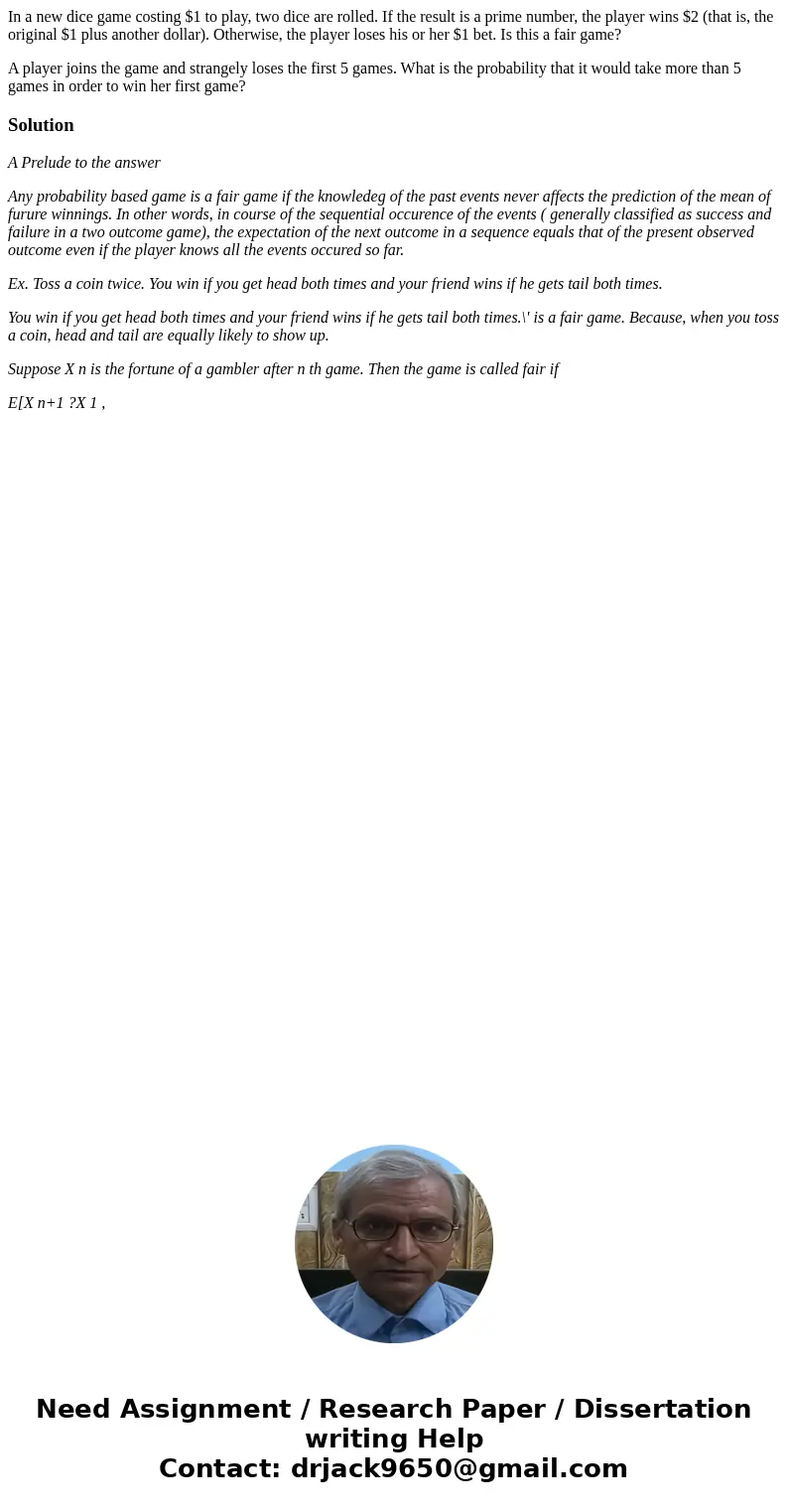In a new dice game costing 1 to play two dice are rolled If
In a new dice game costing $1 to play, two dice are rolled. If the result is a prime number, the player wins $2 (that is, the original $1 plus another dollar). Otherwise, the player loses his or her $1 bet. Is this a fair game?
A player joins the game and strangely loses the first 5 games. What is the probability that it would take more than 5 games in order to win her first game?
Solution
A Prelude to the answer
Any probability based game is a fair game if the knowledeg of the past events never affects the prediction of the mean of furure winnings. In other words, in course of the sequential occurence of the events ( generally classified as success and failure in a two outcome game), the expectation of the next outcome in a sequence equals that of the present observed outcome even if the player knows all the events occured so far.
Ex. Toss a coin twice. You win if you get head both times and your friend wins if he gets tail both times.
You win if you get head both times and your friend wins if he gets tail both times.\' is a fair game. Because, when you toss a coin, head and tail are equally likely to show up.
Suppose X n is the fortune of a gambler after n th game. Then the game is called fair if
E[X n+1 ?X 1 ,

 Homework Sourse
Homework Sourse